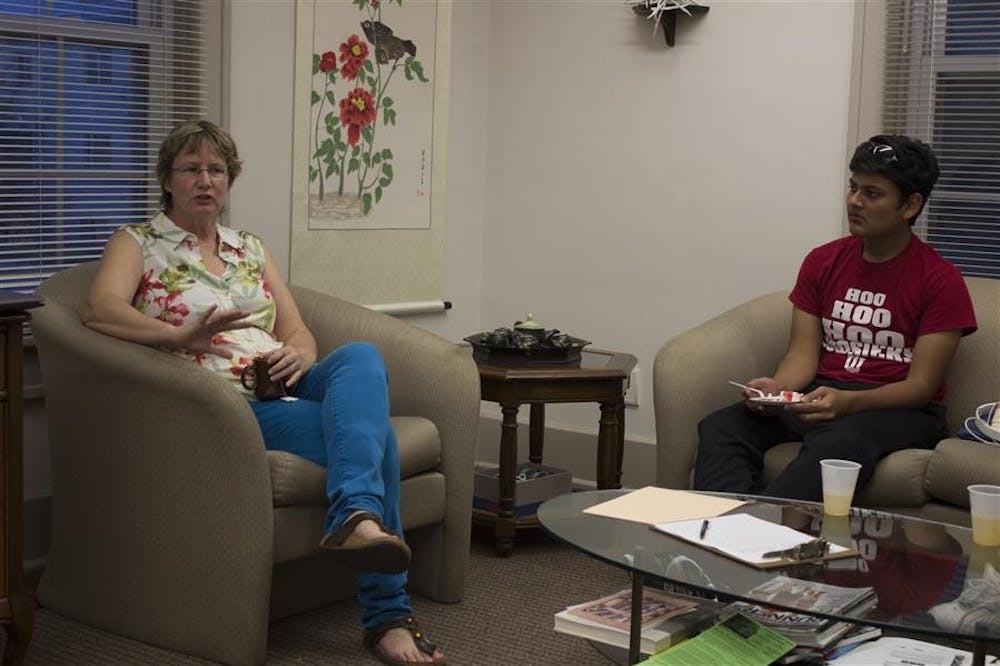There is a difference between what the NSA is doing and what is acceptable under American legal traditions, informatics professor and director of security informatics L. Jean Camp said.
In an “Over a Cup of Tea” talk at the Asian Culture Center, Camp addressed a small group of students about the recent NSA scandal.
Camp said she believes the topic is one of social importance that “has beenobfuscated by technical jargon.”
A cornerstone of Camp’s talk was cryptography, and how the NSA has been using it to their advantage.
Camp addressed a number of concerns surrounding the NSA’s information processing, including the sheer volume of information available to them.
“If you look at the Boston bombings, the Boston FBI was alerted to the (Tsarnaev) brothers, but they were also alerted to 1,000 other possible dangerous people,” Camp said, “In the process it is producing so many red flags that the actual red flag is lost in the noise.”
Camp said the volume of information could make it more difficult for the NSA to find relevant information.
“If you’re looking for a needle in a haystack, the thing you do not want to do is massively expand the size of the haystack,” Camp said.
Camp noted the lack of security in the overall system as an issue.
“The other thing is they are not supervised,” Camp said. “Edward Snowden was able to take all of this information out. I think he is a patriot ... but you have to admit, they shouldn’t be able to do it. They were able to take almost the whole database.”
Students attending the talk were mostly members of the Asian Culture Center.
“I came to the event to meet other Asian students,” sophomore Nur Dinie Mohd Zamri said. “I wasn’t sure what the talk was about, but I’m anticipating (learning about it).”
After the talk, students had a number of questions. Their interests focused on how privacy policies could be affecting their student lives.
Camp gave students tips on self-monitoring of social media and communication settings.
“In particular, I would be careful about Facebook settings,” Camp said. “If you allow friends of friends, you’ve got a much larger circle than you realize.”
Camp also suggested a number of encryption tools that concerned students can use.
“There are definitely encryption tools,” Camp said. “Silent Circle — you can get that ... for anybody who calls or texts, no one can listen into it. I know all of the guys doing the crypto and there is no back door there.”
The event was originally scheduled for Sept. 26, but had to be moved when Camp was called to speak in front of the national security staff at the executive office of the president. She said she gave the staff information on security and privacy.
In general, Camp said she encourages students to take action if they feel concerned about their privacy.
“Their economic futures should not be undermined by the NSA. It’s our economy and our future,” Camp said. “Even if you feel it’s worth the cost, speak up and say that, too. You’re not going to get heard if you don’t say anything.”
Follow reporter Rashmika Nedungadi on Twitter @rashmika_n
Informatics professor highlights effects of NSA surveillance on students

Get stories like this in your inbox
Subscribe


